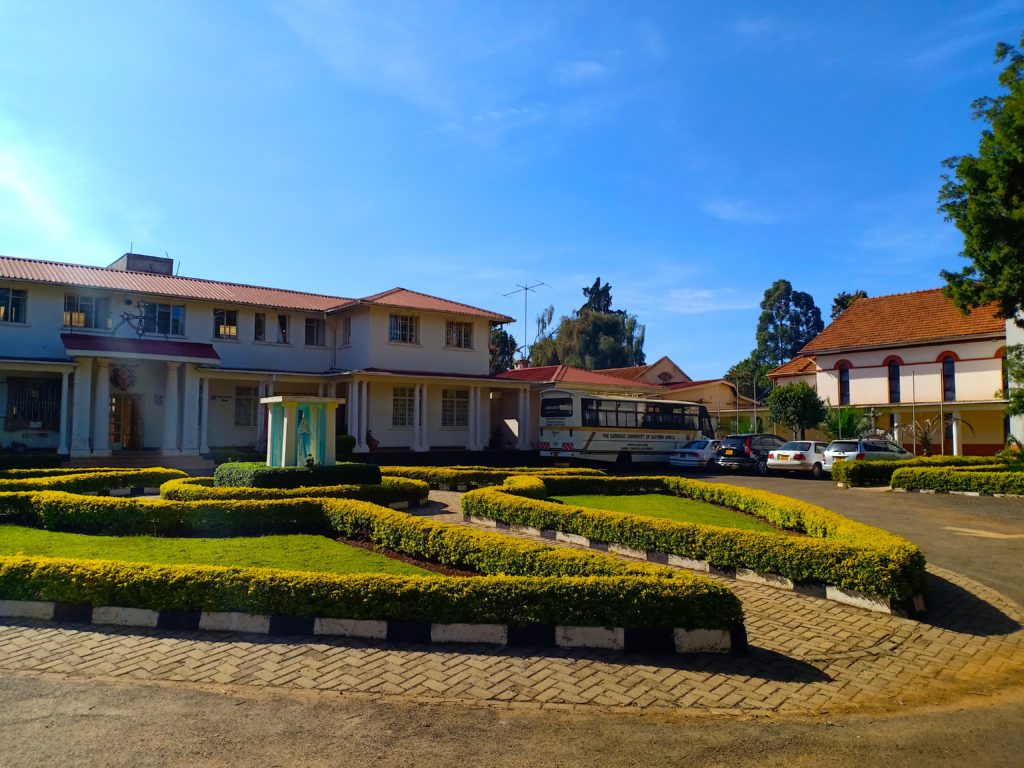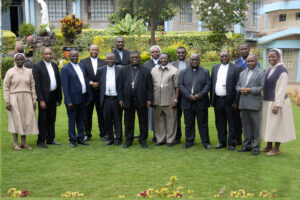KENYA: AMECEA Pastoral Institute Starts Registration For 2020-2021 Intake Amidst Considerations of Post-Covid-19

AMECEA Gaba API
Andrew Kaufa, smm
As Kenya government authority consider reopening of activities after three months of lockdown due to the Coronavirus pandemic, AMECEA’s Pastoral Institute (API) has started registration of candidates for the September 2020 intake.
Commenting on the development, coordinator of AMECEA Gaba Publication and chief editor of African Ecclesial Review (AFER) Fr Dr Jordan Nyenyembe says, “We look forward to receive applications from the dioceses and Religious Congregations in all Conferences of the regional body, AMECEA, so as to boost the vitality of the institute.”
The institute closed its operation in the middle of March this year, following the outbreak of Covid-19, and in response to the executive order by President Uhuru Kenyatta to shut down all schools and colleges in the country.
AMECEA API, also known as Gaba Institute, is an oasis for academic, spiritual and pastoral renewal owned by the Association of Member Episcopal Conferences in Eastern Africa (AMECEA) which comprises of 8 bishops Conferences in the region: Ethiopia, Eritrea, Sudan/ South Sudan, Uganda, Kenya, Tanzania, Malawi and Zambia, with Somali and Djibouti as its affiliate countries.
The API was established in 1968 at Gaba in Uganda but due to unfavourable political climate and insecurity during the reign of President Idi Amin, AMECEA moved the centre to Eldoret, Kenya, in 1976.
API offers a unique sabbatical program for pastoral agents in the region so that priests, nuns and catechists “renew themselves by undergoing an ongoing formation program in a context enriched by the Catholic University’s academic programs at Gaba Campus, hence providing the participants with a setting enriched by dialogue among priests, Religious men and women and lay persons
“This reflects the Church as family of God as described by the first African Synod in 1995,” reads a presentation of the institute by AMECEA Secretariat adding, “API is committed to training creative, prophetic and open-minded pastoral leaders and agents of evangelization.”
Fr Nyenyembe shared that currently, the API runs three programs, namely Diploma in Pastoral Ministry (for priests); Diploma in Evangelization and Catechesis (for Religious men and women); and a Spiritual Renewal Program for those on non-academic sabbatical rest.
“The API programs help participants to provide better pastoral responses to prevailing influences such as secularization, consumerism, devil worshipping, political unrest, socio-economic problems and family challenges,” continued Dr. Nyenyembe.
“They also help pastoral agents to make the Gospel relevant to the prevailing situations; to promote better administration of temporal goods, evangelization and self-reliance of the churches; to offer broader perspective on servant leadership,” he added.
For the 2019 and 2020 intakes, the institute received as participants, priests, Religious men and women as well as laity (catechists) from South Sudan, Tanzania, Malawi, Uganda, Kenya and Zambia. However, in the previous year the institute also received participants from Namibia.


